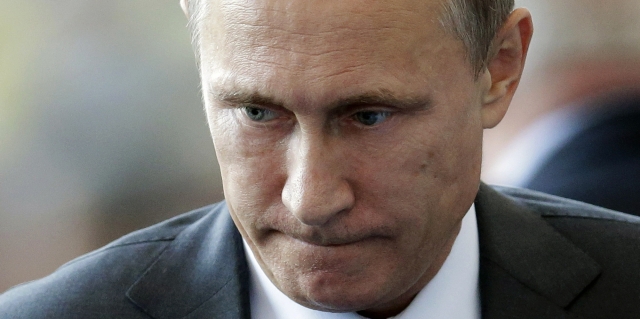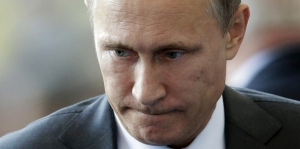Russia Has More to Lose than South Ossetia if it Allows Unification with the North
OPED
The De-facto leader of occupied South Ossetia started talking about joining Russia again this week. Leonid Tibilov announced that at the referendum that will be held by the end of this year, citizens will have to answer only one question: “Do you support us joining the Russian Federation?”
Tibilov made the announcement about this constitutional initiative in the Georgievsky Hall in the Kremlin, on a visit to President Putin to settle the financial problems of the occupied territory.
It is nothing new that occupied South Ossetia wants to join the Russian Federation. To be more precise, that it wants to be united with North Ossetia which, as everyone is aware, is the federal subject of the Russian Federation. While in Tskhinvali they call it the restoration of historical justice, whether it really is “historical justice” or not is a question of another debate. The fact that the term “South Ossetia” emerged on the world map only after the Bolshevization of Georgia is already sufficient argument. Afterwards, despite this political casus, the issue of unification of South and North Ossetias has never left the agenda. Moreover, there was even a period in the 1930s when North Ossetia wanted to unite with South Ossetia and this time within the borders of the Georgian Socialistic Republic. At that time Stalin made the decision and the map that was marked by him was left intact until the collapse of the Soviet Union. After said collapse, the issue of South and North Ossetia uniting became more active with ethnic Ossetians but was always opposed by Moscow.
As the last meeting of Tibilov and Putin suggested, the Kremlin wasn’t so enthusiastic about this initiative from Tskhinvali. After meeting President Putin, Tibilov started talking about the delicate nature of the referendum issue and the international prestige of Russia. The fact that the Kremlin does not support the growth of its federal subjects within its territory has also been confirmed by Russian analysts. Political expert Andrey Epiphantsev believes that the adoption of South Ossetia into the Russian Federation won’t change anything for Tskhinvali, but is rather disadvantageous for Russia. “South Ossetia is on our shoulders in any case, both financially and politically. As for the losses, these will be quite big for us. Taking a step like this after Crimea means we should stop dreaming about the international economic sanctions being lifted – forever. In addition to that, Georgia might be accepted to NATO, which will be a political disaster for us. Therefore, the issue of receiving South Ossetia into the Russian Federation is no more than a different tool in order to stop the events from developing in this direction,” Epiphantsev told journalists of the newspaper ‘Arguments and Facts’. But what will happen if the de-facto leader of South Ossetia does really address Putin about joining the Russian Federation based on the outcome of the referendum? According to Carnegie Moscow Center analyst Alexey Malashenko – not much, “We will just thank our Ossetian brothers and tell them it is impossible.”
There are about 25 thousand people living on the occupied territory, not counting the Russian soldiers that live on the Tskhinvali and Java military bases, the number of which exceeds 10 thousand. Keeping the territory populated with only 25 thousand people costs Kremlin RUB 7.3 billion, about USD 120 million. If we take into consideration the scale of Russian corruption then it is easy to imagine what sort of financial “laundry” Tskhinvali really is for the Russian officials today. Therefore, unsurprisingly, changing this corrupt scheme will not suit Russia today. However, anything can be expected from the unpredictable Kremlin.
Unlike the Russian analysts, their colleagues in Tbilisi have different thoughts and arguments in fear that the de-facto leader of occupied South Ossetia voices the position of the Kremlin and that it serves the purpose of Georgia being refused its Euro Atlantic course. An opinion exists that raising this issue is connected with the investigation that started in Hague regarding the war crimes committed in 2008. In light of the predictions by analysts, whether Russia will receive South Ossetia and unite North and South Ossetias is as yet unknown. One rather important and unusual thing happened during the Russian tour- Tskhinvali accused its Northern brothers of treason because of the concerts that have been held in the Vladikavkaz where Georgian folk Ensembles Rustavi and Bani participated.
Zaza Jgarkava












